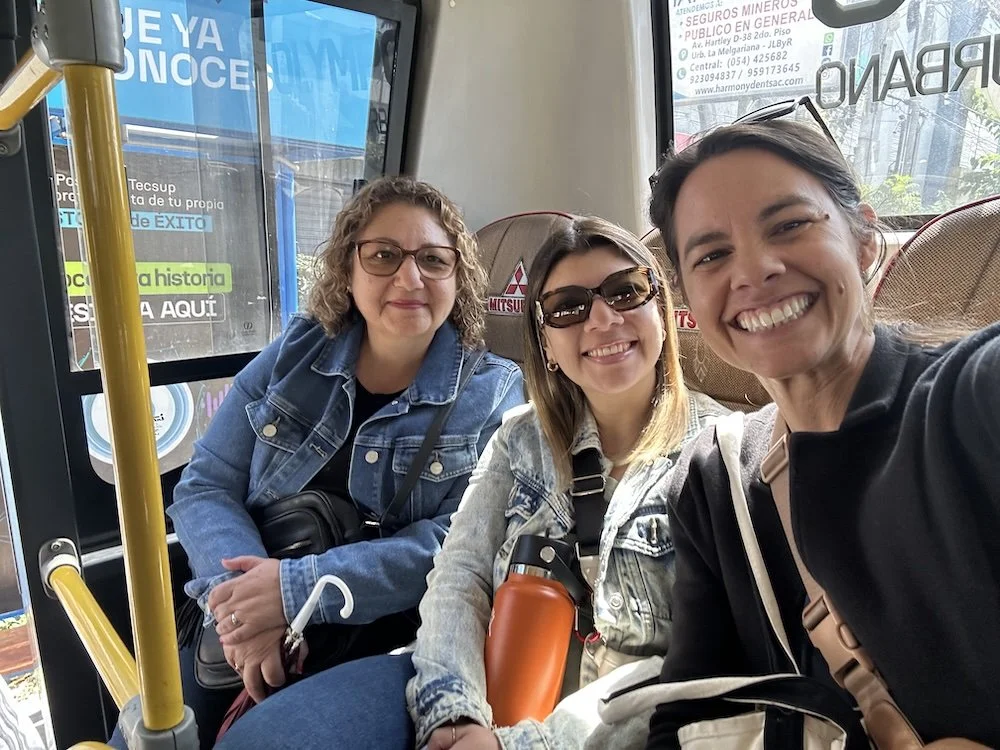Quarantine in Peru - an Update from Day 144 of Lockdown
We are on day 144 (that's almost 5 months!!) of lockdown quarantine here in Arequipa. What this means is that you are only allowed to go out to buy essential items. This is supposed to cut down on the number of people out, the amount of time people spend out, all to decrease the amount of contact between people. However, because of the way of life here, it hasn’t worked exactly as the government hoped.
Cultural Learning: Trust and Mistrust in Arequipa
Since moving here two years ago I have begun to understand a piece of the culture that I had no idea existed. Trust and mistrust are two sides of a coin that are very significant here in Arequipa. Getting to know people and building a level of trust with them is no easy task. Once you do build trust with a Peruvian you have made a real friend and it’s a beautiful thing
Cultural Learning: The Lord of Miracles
Incense. Candles. Live bands. Fireworks. Veils. Popcorn. Cotton candy. Barefoot reverence. Purple vestments. Dueling bands. Balloons. Crosses. Flowers. Candied apples. Priests. Banners. Crucifixes. Ornamental street tapestries. And people. Lots of people. Men dressed in purple are carrying a massive painting of Jesus on a heavy pedestal. Others dressed in purple are following close behind, reciting their prayers and showing their devotion to the Lord of Miracles, some by walking barefoot.
Missionary Mom: A Christmas Story
You know how almost every home in the states has a Christmas tree this month? Well, here in Peru, almost every home has a nativity scene displayed. It is hard not to think about the story of Jesus’s birth when I see the nativity scene everywhere that I go. Peruvians can relate to the story of baby Jesus and theVirgin Mary. I would like to share a personal story with you relating to the Christmas Story.
Crossing Cultures: Acclimation
Living in a foreign culture for years is an odd thing. At first, everything was either extremely interesting or extremely annoying, because we were evaluating all experiences against our own and determining whether new things should be accepted or merely endured. I’ve been writing this column for two years, which means I’ve spent lots of time paying attention to the things I experience, trying to put my finger on their value to a Peruvian’s life and extrapolate the value I should integrate into my own.
Crossing Cultures: Entrepreneurs
As a reader of this newsletter, I’m sure you know that a large part of our developmental ministry is doing micro-loans, which just means small amounts (by our definition) loaned to small businesses. I’ve recently done more thinking than usual on this subject due to some conversations with Anna Heikkilä about her thesis topic options and realized some cultural trends that I had simply not noticed before.
Crossing Cultures: Welcome
Early on during our time in Peru, I asked a friend about how to reach out to neighbors. I learned that the responsibility would fall to me to befriend the woman of the family, whose task it is to screen newcomers before introducing them to the other members. It has been an interesting process to learn how to host others in our home in ways that communicate hospitality to Peruvians.
Crossing Cultures - Diminutive
We like being given the recognition we feel we deserve. It is not uncommon for our children to start asserting their “grown-upness” at a young age, reminding us parents that they are now X years old and don’t need our help with the task or decision under discussion. This continues throughout life, when we get our hackles up should someone insinuate that we are less than we actually are, whether it refers to age (college kids coming home during the summer?), job status (fetching coffee for the boss?), or a variety of other facets of life.
Crossing Cultures: Identification
We are used to being identified by a few key pieces of information, typically including full name, possibly maiden name, Social Security number, driver’s license number, and birthdate. Some of that information is widely known, while some is protected in order to protect our identity, our uniqueness and access to personal things.



